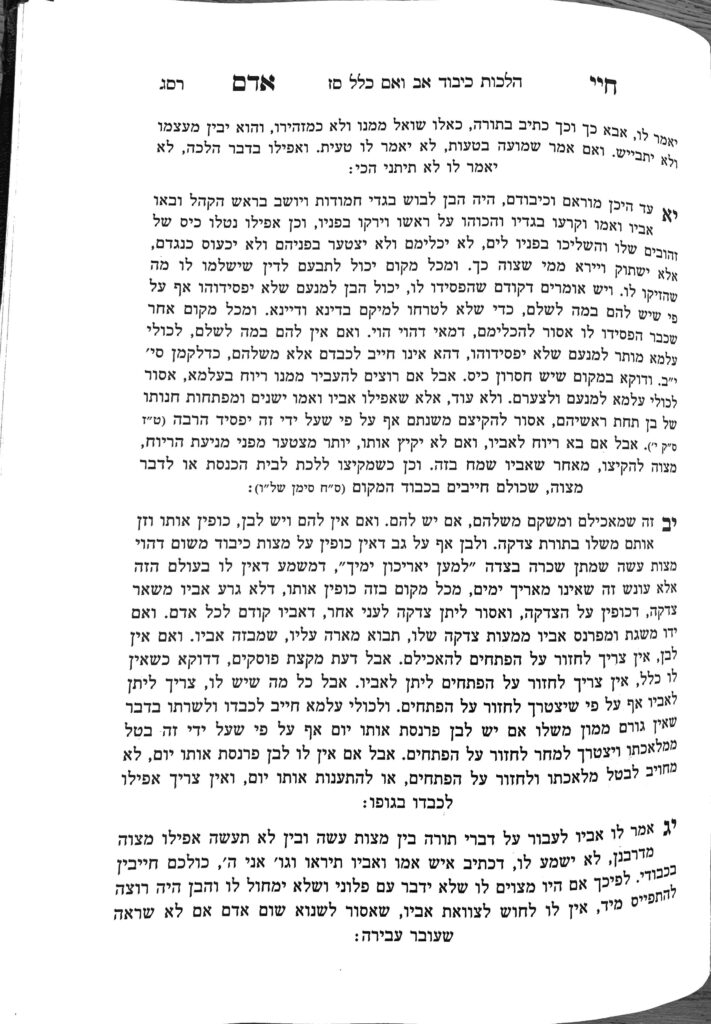We are finishing siman 12 and need to clarify the concept of mishel av and mishel ben. Any time we discuss a mitzvah, a person is obligated to spend up to one fifth of their money to do the mitzvah. For example, the mitzvah of tefillin is fulfilled by wearing them. Buying tefillin is only a hechsher mitzvah, as purchasing tefillin is not inherent in the mitzvah itself. However, if the only way one can fulfill tefillin is by purchasing tefillin, a person would be chayav to spend up to one fifth of their money in order to buy tefillin.
Therefore, everyone agrees that financial outlay is incumbent on the individual in order to fulfill kibud av v’eim. Regarding kibud av v’eim, the question of mishel av and mishel ben hinges upon whether the money used for kibud av v’eim is part of the mitzvah itself or just a hechsher. The opinion which holds mishel ben understands that the mitzvah of kibud av v’eim is not just acts of service, but providing the parents with anything they may need, including providing financial support. We do not pasken in accordance with this opinion, but rather with the opinion of mishel av. This opinion understands that the child’s responsibility is to serve the parent through acts of service, but the financial backing for those acts of service is up to the parents to provide. But this opinion does agree that one is mechuyav to spend money in order to facilitate acts of service, just like any other mitzvah. This is the rationale for the story which we mentioned yesterday. It comes out that this machlokes gets at the core of kibud av v’eim, as it addresses whether the mitzvah is limited to acts of service, or also to supplying needs.
According to both opinions, one certainly fulfills the mitzvah of kibud av v’eim by financially supporting their parents even if they are not chayav. Such a person would fall under the category of eino metzuveh v’oseh, one who is not obligated but does so anyway. It is akin to a korban nedavah, in the sense that the child is going beyond their technical responsibilities, to show their love for Hashem and His mitzvos.
In siman 13, the Chayei Adam discusses when kibud av v’eim conflicts with other mitzvos. In the coming siman, he will discuss a conflict between a direct command from a parent and a mitzvah. In siman 14 he will discuss a conflict between mitzvos and service to a parent, without the parent giving an explicit command against the mitzvah. In siman 15, he will discuss when a parent and child disagree on how to go about fulfilling a mitzvah (e.g., where to learn).
Summary
The machlokes whether kibud av v’eim is mishel av or mishel ben will determine whether a child is chayav to provide financial support for their parents. We pasken mishel ben. Therefore, the chiyuv kibud av v’eim is limited to acts of service and does not include financial support. However, both opinions agree that financial outlay will be required to facilitate the mitzvah of kibud av v’eim.



